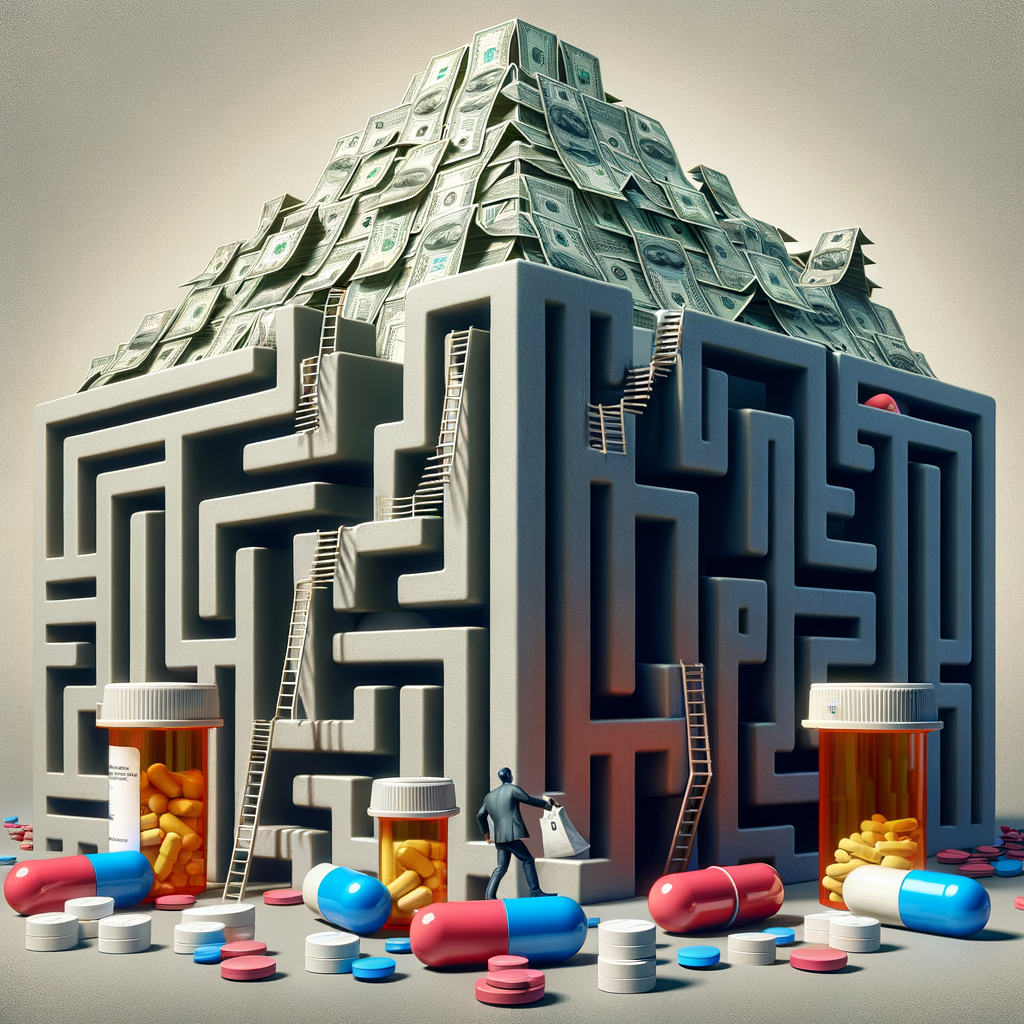Introduction
The pharmaceutical industry has been under scrutiny for its opaque practices that have led to the exorbitant inflation of prescription drug prices, creating a significant financial burden on patients and families. This article delves into the secretive machinations of the industry, uncovering the hidden strategies and systemic failures that have contributed to this unjust price gouging.
Lack of Price Transparency and Regulation
The pharmaceutical industry operates with a remarkable lack of price transparency. Unlike most other industries, drug companies are not required to publicly disclose the costs associated with research, development, and manufacturing. This secrecy allows them to set prices arbitrarily, with little oversight or accountability.
Compounding this issue is the weak regulatory environment governing drug pricing. The United States, in particular, has a fragmented and inadequate regulatory framework that fails to effectively control price increases. This lax approach has created a fertile ground for pharmaceutical companies to exploit loopholes and manipulate the system.
Exclusive Agreements and Market Consolidation
Pharmaceutical companies often engage in exclusive agreements with insurance providers and pharmacy benefit managers (PBMs). These contracts give the drug companies exclusive access to patient prescription lists and allow them to negotiate higher prices. Additionally, the consolidation of the pharmaceutical industry has led to a handful of large corporations controlling a significant portion of the market, further reducing competition and driving up prices.
Patent Extensions and Abuse
Drug companies aggressively pursue patent extensions for their drugs, prolonging their exclusivity and allowing them to maintain high prices. This practice undermines generic competition and limits affordable options for patients. In some cases, pharmaceutical companies have been accused of abusing patent laws to extend monopolies and prevent generic entry.

Aggressive Marketing and Prescription Incentives
Pharmaceutical companies spend billions of dollars on marketing campaigns to promote their expensive brand-name drugs. These campaigns often target healthcare professionals, encouraging them to prescribe these drugs instead of more affordable generic alternatives. Additionally, some drug companies offer financial incentives to doctors and hospitals for prescribing their products, further skewing the market in their favor.
Impacts on Patients and Healthcare
The inflated prices of prescription drugs have devastating consequences for patients and the healthcare system. Many patients struggle to afford essential medications, leading to non-adherence and compromised health outcomes. High drug costs also strain healthcare budgets, allocating resources away from other critical services.
Political Influence and Lobbying
The pharmaceutical industry wields considerable political influence through lobbying and campaign contributions. This influence allows them to shape legislation and regulations that protect their interests and shield them from price controls. The revolving door between industry executives and government officials further blurs the lines between public policy and corporate profit.
Solutions and Recommendations
Addressing the opaque industry practices that inflate prescription drug prices requires a multifaceted approach:
- Increased Price Transparency: Governments must mandate pharmaceutical companies to disclose detailed cost and pricing information for all drugs. This transparency will enable patients, healthcare providers, and policymakers to make informed decisions.
- Strengthened Regulation: Regulatory agencies must be empowered with stronger authority to control drug prices. Stricter regulations can limit excessive price increases, promote generic competition, and prevent patent abuse.
- Reduced Market Consolidation: Anti-monopoly measures should be implemented to break up large pharmaceutical corporations and foster a more competitive market environment.
- Curbing Exclusive Agreements: Exclusive agreements between drug companies and healthcare providers should be restricted to prevent anti-competitive practices and promote patient choice.
- Limiting Marketing and Incentives: The marketing and promotional activities of pharmaceutical companies should be closely monitored to ensure they do not distort prescribing decisions. Financial incentives for prescription should be prohibited.
- Patient Advocacy: Patient organizations and consumer advocates must play a vital role in challenging inflated drug prices and advocating for increased affordability.
Conclusion
The opaque practices of the pharmaceutical industry have created a system that unjustly inflates prescription drug prices, imposing a heavy financial burden on patients and families. Urgent action is required to address this systemic failure. By implementing comprehensive reforms, empowering regulatory agencies, and fostering transparency, we can break down the industry’s secrecy and ensure that patients have access to affordable and essential medications. Only through a collaborative effort can we create a fair and equitable healthcare system where drug prices are no longer a barrier to good health.












